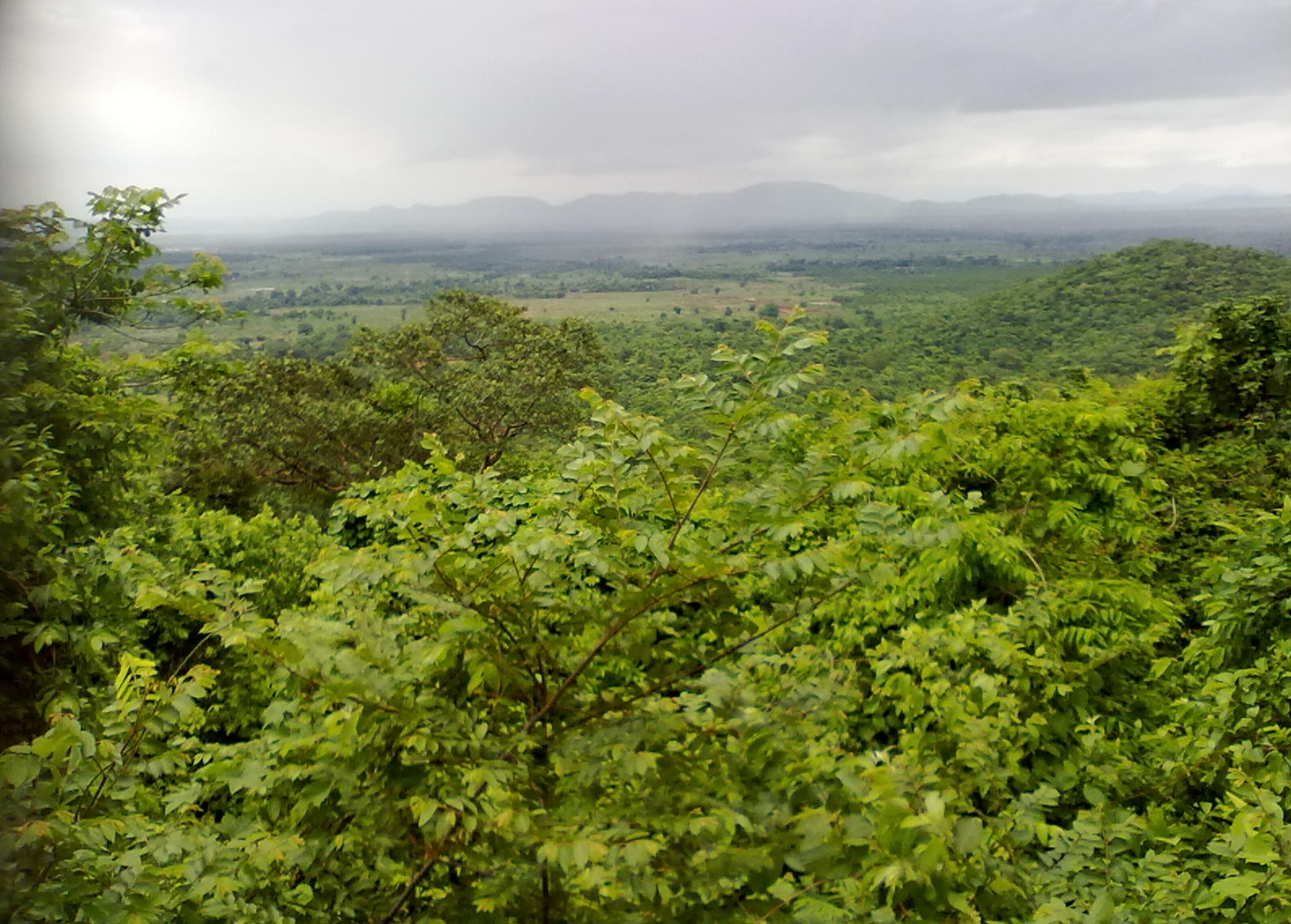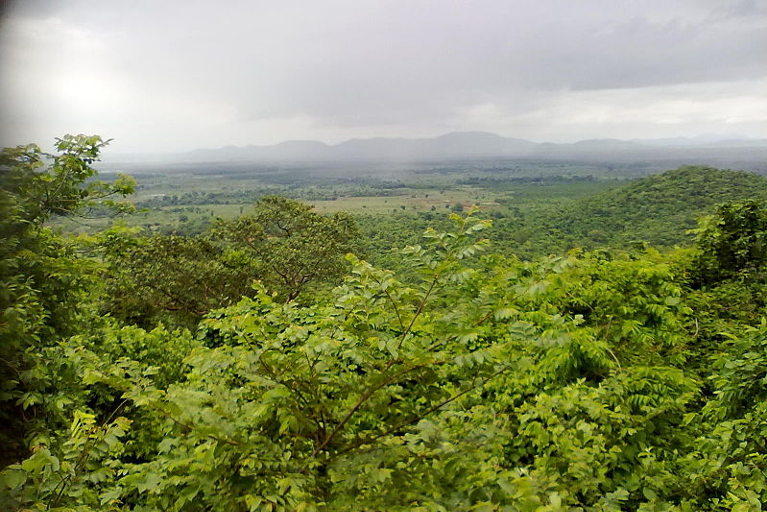For my ‘Frontiers of Commoning’ podcast, Episode #5, I recently interviewed Professor Neera Singh, a geographer at the University of Toronto, who has long studied forest commons in India. Singh’s scholarship specializes in conservation, “development,” and the governance of natural systems.
I wanted to interview Neera because I have a keen interest in the role of subjectivity in a commons. How does a person participating in a commons feel as a result of that participation, and what effects does that have for the community and ecosystem?
One of Neera’s key findings is that the “affective labor” of commoners produces healthier, more resilient forests than corporate or bureaucratic state management. But in a world dominated by state and corporate power – and therefore by impersonal institutions with rigid logics — a key challenge is how to honor the soft, creative power of affective stewardship.

A forest in Odisha, India. Photo by Diptiman Panigrahi, Creative Commons BY 3.0 license.
In my podcast interview, Neera describes how, as a young academic, she was walking through one forest plantation after another, each filled with orderly rows of acadia and eucalyptus trees and little else. Then, to her astonishment, she stumbled upon a lush, green forest. “For me, at that time, it was like….’oh my God!’,” she said.
The lush, inviting forest was in fact a community forest. The nearby villagers loved and cherished it. Because of their deep emotional care for the landscape and its health, the forest was a beautiful, thriving ecosystem – unlike the nearby factory-style plantations whose trees are raised as commodity timber, with little regard for the long-term ecological health and biodiversity of the forest.
Singh’s early encounters with forests in India led her to study community forests more intensively. In 2012, she published an article that summarized some of her key findings in Geoforum journal under the title, “The affective labor of growing forests and the becoming of environmental subjects: Rethinking environmentality in Odisha, India.”
After comparing industrial-style monoculture forests managed for productivity and predictable outputs, with the social practices of community forests, Singh concluded that the subjective identities that people develop in the course of caring for their forests — their “affective labor” — makes a big difference.
Unlike wage-labor or state-mandated behavior, affective labor develops people’s inner selves and fuels higher, nonmarket aspirations. People become eager to bring emotional connections and spiritual commitments to their “work.” They are stewarding “care-wealth.” They are taking care of the things that matter to them, with dramatic results.
What made Neera’s 2012 article so compelling to me was its willingness to abandon the standard idiom of “resource management” used by economists, social scientists, and even some commons scholar. Instead she focused on the subjectivity of commoners as a serious topic for empirical investigation.
Instead of presuming that every villager was an isolated individual making rational calculations about how to extract as much value for herself (as Hardin’s “tragedy of the commons” fable does), Neera wanted to explore “the role of affect and environmental care practices in the production of new subjectivities.” There is a collective culture and commitment into which individuals are integrated as “Nested-I’s.” Given that there are about 10,000 villages actively protecting state-owned forests in Odisha, it makes sense to explore how elaborate community-based arrangements actually work.
Singh’s paper documented how “villagers’ daily practices of caring for and regenerating degraded forests in Odisha can be seen as affective labor in which mind and body, reason and passion, intellect and feeling are employed together. Through the environmental care practices involved in ‘growing forests,’ villagers not only transform natural landscapes; they also transform their individual and collective subjectivities.”
In other words, the inner lives of commoners, as commoners, have direct consequences for the external, material world. They are engaged in a symbiotic dance with living natural systems, a call-and-response conversation with the more-than-human plants and creatures of the forest.
Of course, traditional communities and indigenous peoples have known this for generations. It is western science and business that have not really understood this. It has taken novels like Richard Powers’ The Overstory – a series of stories about people’s intimate, intergenerational relationships with trees – to give a sense of how animism is alive and well and uplifting, even in western societies that consciously deny “superstition.”
Far from being gratuitous, human care lies at the core of everything. (Ah, but how do you measure it, the scientist and business executive responds!) Georges Braque, the French painter, once said “I do not believe in things. I believe only in their relationships.” The German physician Hans Peter Dürr agrees with this conclusion:
“Basically, there is no such thing as matter. At least not in the common sense. There is only a fabric of relationships, constant change, vitality. We have trouble imagining this. What is primary is only the interrelationships that exist – that which connects. We could also call it spirit. Something we can only experience spontaneously and cannot grasp.”
The stewardship of forests in Odisha brings many of these ideas into focus.People’s affective labor makes something vital and alive. It’s how we co-create the world with other living organisms. That is what creates value and meaning – far more than the “utility” or price that economists regard as value. Give a listen to my podcast interview with Neera Singh to get a richer sense of her research.
To read more of Neera Singh’s scholarship in this area, here are a few thoughtful articles:
Ephemera 17(4): 751-776: “Becoming a commoner: The commons as sites for affective socio-nature encounters and co-becomings”
Ecological Economics 163 (2019) 138-142: “Environmental justice, degrowth, and post-capitalist futures.”
Book (2018) PDF): Ecologies of Hope & Transformation: Post-Development Alternatives from India, coedited by Neera Singh, Seema Kulkarni, and Neema Pathak Broome.






